June 11, 2015
Dear waste pickers and allies,
We are happy to share with you the 13th issue of “Struggles and Victories: Waste Pickers on the Frontline”.
Table of Contents
Asia
Latin America
Africa
Europe
 Asia
Asia
Alliance of Indian Waste Pickers’ National Workshop, 2015 (India) by Alliance of Indian Waste Pickers (AIW) (03/01/2015)
The Alliance of Indian Wastepickers (AIW) is a national network of membership based organizations working on organizing informal waste workers for ensuring access to livelihoods and social security. The organization Stree Mukti Sanghtana hosted the 2-day workshop on February 25-26, 2015 in Mumbai. Organizations from Delhi, Bihar, Odisha, Maharashtra, Karnataka, Tamil Nadu, Madhya Pradesh and Andhra Pradesh participated in the workshop. Progress has been made in the provision of occupational identity cards from municipal bodies. The number of identity cards provided in Bangalore has reached more than 7,000 workers in the past three months. Progress has been made in the inclusion of waste picker children in a government scholarship program (several hundred applications have been accepted). Some organizations have facilitated the opening of thousands of bank accounts for waste pickers, which includes insurance coverage under a government program. Waste pickers and informal waste workers also wrote letters to the Prime Minister, urging social inclusion. Participants also visited the offices of Stree Mukti Sanghtana where mini bio-methanization plants and rainwater harvesting is installed. Goals for the next three years include nationwide mobilization for inclusion of wastepickers and other informal waste workers in Swaccha Bharat Abhiyaan, the government cleanliness program; mobilization for opposing incineration-based waste to energy plants which are proposed by Prime Minister’s Council on Climate Change; participation of wastepickers in the UN climate change conference; and incubation of interested entrepreneurs or activists who want to work with wastepickers and in solid waste management. Read the complete article for a full update.
Massive fire in waste pickers’ community: appeal for help (India) by Chintan (04/26/2015)
On April 26, there was a massive fire in the waste picker’s community at Panchsheel Colony, Bhopura, in Ghaziabad (near Delhi, in India). Over 150 shanties have been gutted. Fortunately, there has been no loss of lives. However, 700 waste pickers have been badly affected by the fire and have lost all their belongings. Chintan’s learning centre for waste picker children, where over a 100 children from these communities study every morning, has not been affected by the fire, but with the huge loss to the community, will the children be able to come to school? Chintan’s entire Voice for Waste team and members of the No Child in Trash team, spent hours assessing the damage and providing much needed support to the community. Safai Sena waste picker members from Bhopura and Takya Kale Khan have also pitched in with money for food and other necessities. Chintan surveyed the number of adults and children that have been affected. They are in urgent need of food, clothes, and essential items. To donate, visit this link.
Provide education to 100 waste picker children (India) by Chintan (03/26/2015)
The project seeks to enable children living in extremely violence-ridden, poor, and socio-culturally marginalized waste-picking community in India to reach their full potential through access to and retention in formal education. The learning centers work to enable communities to build capacity to educate children. As children enter schools, the biggest challenge is to retain them there, and to ensure they do not slip back into waste picking. This proposal will target 100 such children. Picking trash is a popular occupation in Delhi because of the 8,000 tons it produces everyday. This provides work to the unskilled, underage and poor (60,000 in Delhi alone). The combination of large amounts of waste and abject poverty creates the ideal condition for children to be pushed into work. Working as a wastepicker comes at a cost, especially if you’re a child as it stops children from studying and deprives children of their health. It also leaves such children more vulnerable to abuse. Chintan’s ‘No Child in Trash’ programme enables such children to move from dumpsites to schools. In a nutshell, Chintan identifies wastepicking children in an area, holds bridge classes, incentivizes them to attend these, and then finally, helps these children to move to mainstream education. Chintan will work to enable 100 children (and their families), living in extremely violence-ridden, poor, and socio-culturally marginalized waste-picking community in India to reach their full potential through access to and retention in formal education, and by building community support. Read the complete article.
Bhopura Youth Times: The voice of waste picker children (India) by Chintan (12/05/2014)
Chintan is proud to present the Bhopura Youth Times, a newsletter put together by the waste picker youth of Bhopura, Tila Mod, Mangal Bazaar Ghazaiabad, an area home to a large waste picking community. The youth talk about their everyday lives, problems, joys and celebrations. One of the goals is to connect young people to each other, to their communities and their adult role models. Chintan’s No Child in Trash programme started a pilot project with Bhopura waste picker youth (14-24) with the intention of providing them with life and job skills. They are trained in problem solving, critical thinking, effective communication, decision-making, creative thinking, interpersonal relationship skills, self-awareness building, empathy, and coping with stress and emotions. Chintan started the No Child in Trash program in 2003 to help enable waste picker children to move from dumpsites to schools. In a nutshell, Chintan identifies waste picking children (4-14 years) in an area, holds classes, incentivizes attendance, and then helps children transition to mainstream education, preparing them pedagogically, emotionally and legally. To prevent the mainstreamed children from dropping out due to academic pressure, they are provided supplementary education in support study classes. Read the full article.
Waste pickers in India demand freedom from unfair contracts (India) by KKPKP (02/09/2015)
The Pimpri PCMC has appointed 300 waste pickers for door-to-door collection of waste through labour supply contractors. By law, it is mandatory to pay the workers minimum wages prescribed by the government of Maharashtra. But for over two years, workers have continued working without a minimum wage or any other benefits due to the absence of appropriate conditions in the previous tender. They are not even entitled to weekly days of rest! For two years, KKPKP, the 20 year trade union of waste-pickers, has been demanding justice for these workers. Paying heed to their demands, the PCMC has published a new tender which will guarantee workers their basic rights such as minimum wages, employees’ state insurance, bonuses, paid holidays and protective equipment. The contractors will be paid a 10% commission on the wages paid to workers for managing the work. The contractors must pay all wages directly in bank accounts of workers. These norms are the standard in government contracts. The tender also includes conditions for inclusion of waste-pickers to comply with directions of the Mumbai bench of the High Court. However, this move for transparency and fair commission has not gone down well with labour contractors who have complained about the taxing nature of the tender conditions. A look at the profits made by the contractors over the past two years reveals exactly why they are opposed to the proposed system. Read the complete article.
Waste pickers of Indore celebrated India’s 66th Republic Day (India) by Roy Thomas, Janvikas Society (01/26/2015)
On January 26th, waste pickers working at Devguradia dumping ground in Indore, India, celebrated India’s 66th Republic Day. The workers gathered at the dumping ground at 9 am to hoist the national flag. Children carried balloons and national flags. It was a moving experience to see the tiny hands that pick up waste holding the flag, the children with a smile on their faces. It is important to remember that these children are denied the basic right to education due to poverty. Waste pickers play a vital role in solid waste management and keeping the city clean but their hard work and service is not being recognized by society and the government. Approximately 700 metric tons of waste that is generated in Indore is being dumped daily. There are about 250 men and women along with about 100 children working daily in the dumping ground, collecting plastic, paper, glass and metals. They live their lives from the little money earned from the waste collected. Janvikas has been working for the past 14 years for the empowerment of waste pickers in Indore through the unorganized women workers’ union and cooperative. Read the complete article.
 Latin America
Latin America
Waste Pickers’ Children learn to make movies in Minas Gerais (Brazil) by MNCR (02/03/2015)
The students at Recicla Filmes, a project created by Rede Cataunidos, attended and were very interested in learning movie making techniques. These young people – the children and grandchildren of waste pickers – attended the course’s opening class at Centro Cultural Lugar de Cinema and are already eager for the next class. The students were visited by the Uruguayan director and scriptwriter Pablo Stoll (Cannes, among others) and production designer Jeannine Oppewa (four-time Academy Award nominee), who works in Hollywood. Looking to create ways and opportunities to include the young children of waste pickers, Rede Cataunidos – comprised of 34 waste picker associations of Belo Horizonte, Metropolitan Area, Estrada Real and Centro-Oeste – set up the “Recicla Filmes” project. The initiative is intended to train 45 young people chosen to participate in the project. They will have a total of 250 hours of practical and theoretical classes, resulting in the production of 08 short films on urban solid waste and the work performed by waste pickers. The Recicla Filmes project partnered up with the Nenuca Institute for Sustainable Development (Insea, in Portuguese), the National Movement of Waste Pickers (MNCR, in Portuguese), the National Waste Picker Association (ANCAT, in Portuguese) and the Lugar de Cinema Cultural Center. Read the press release.
Towards Enforcement of Court Order 275 of 2011 (Colombia) by ARB/WIEGO (02/05/2015)
From the video series “Chronicles of a Fight for Inclusion”, which deals with the struggles of waste pickers in Colombia, comes “Towards Enforcement of Court Order 275 of 2011”. This video is a production of the Association of Waste Pickers of Bogota (ARB for its acronym in Spanish) in partnership with Women in Informal Employment: Globalizing and Organizing (WIEGO). Watch the video.
First Popular Training for Waste Pickers, Cart Drivers and Recyclers from Across Argentina (Argentina) by FACYR/CTEP (02/02/2015)
From January 23rd until February 1st, 2015, the Argentine Federation of Waste Pickers (FACyR – CTEP for its acronym in Spanish) conducted its First Popular Training for waste pickers, cart drivers and recyclers from all over the country. The Training took place at the National School of Community Organization and Popular Economy (ENOCEP for its acronym in Spanish), located in San Martín de los Andes, Neuquén Province. The initial training course counted with the participation of 22 delegates from more than 10 of the 40 Cooperatives and associations from all over the country that comprise the FACyR. Read full article (in Spanish)
Waste Pickers Chain Themselves Up and Start a Hunger Strike in Buenos Aires (Argentina) by FACYR (03/03/2015)
Having received no reply from the Ministry of Environment and Public Space, headed by Lic. Edgardo Cenzón, and after a massive mobilization by the Argentine Federation of Waste Pickers (FACYR for its acronym in Spanish), Sergio Sánchez, president of the Federation and friend of Pope Francis, decided to chain himself up alongside other 5 presidents of various cooperatives that make up the Federation of Waste Pickers at the frontdoor of the Ministry’s main office (Roque Saenz Peña 570). They decided to start a hunger strike until the minister agrees to sit down face to face with the waste pickers. The goal of this forceful measure is to defend the system of waste picking with social inclusion. Read about the massive mobilization of FACYR.
Report of the 2nd National Waste Pickers’ Meeting in Uruguay (Uruguay) by UCRUS (04/20/2015)
On April 18th and 19th, and revolving around the struggle that UCRUS is currently moving forward in regard to the Classification Plants and the Trust Fund, the 2nd National Waste Pickers’ Meeting took place with the participation of more than 110 waste pickers. The Meeting also included the participation of members of the Occupational Health and Safety Secretariat of the PIT-CNT (Uruguay’s national trade union centre) and of the Cooperative Studies Unit (which belongs to the National Public University, Universidad de la República). The former put together a workshop about the need and role of trade unions, and the latter organized a workshop about public policies related to waste management. Also, the Convention’s Gender Secretariat took the floor to express the importance of the role of women waste pickers in the trade union movement and to raise the issue of gender equality, and a female member of UCRUS, Julia Araujo, presented a report on a recent trip to Brazil to attend a Gender Meeting of Women Waste Pickers. (…) Furthermore, and besides the Meeting Declaration, other resolutions were passed, which dealt with collective agreements, recycled/classified materials sales schemes, a Packaging/Containers Law, the issues of exclusion zones and the confiscation of carts and horses, and the ongoing conflict with the Plants; moreover, a provisional National Directorate was established and was assigned the task of systematizing a Plan of Struggle to move forward on the tenets that resulted from the Meeting’s rich debates. The Meeting’s Final Declaration will be sent to several Ministries, the Municipal government and other relevant bodies. Read full article (in Spanish).
Speech in Honour of Waste Picker Day 2015 Delivered by Laura Guanoluisa, Leader of RENAREC (Ecuador) by Laura Guanoluisa, RENAREC (03/19/2015)
A comrade is one who accompanies you, works alongside you and shares with you the journey both in good and bad times. I learned to accompany others and to be a comrade from the age of five when I accompanied my grandfather to collect materials: I collected toys and he collected residue materials at the waste dumps from dawn till dusk to put food on the table. As the years went by I learned that poverty can be overcome only if the poor are united and organize themselves, so I began to bring together many comrades and we created our waste picker organization back in 2006. Many of us did not even know how to read and write, and we were seen as trash by other people and the institutions; we were seen as worthless individuals and as a social problem, as people who belonged to the lowest strata of society because we had to go through the garbage to find our recyclable materials. Many years had to pass for journey comrades to come by, committed people who extended a helping hand and helped us get organized and to believe first and foremost in ourselves, to think of ourselves as valuable people, and that we can do things, that we have knowledge. And this is how we started to see ourselves in a more confident and secure light, and in 2008, with great joy, eight organizations from several cities of the country came together and we founded the National Network of Waste Pickers of Ecuador…we learned that there were millions of waste pickers around the world and Latin America with similar realities and causes (…). Read full article (in Spanish). Video of the speech.
Brazilian waste pickers join social movements at the World Social Forum in Tunisia (Brazil) by Alex Cardoso, MNCR (04/10/2015)
Despite terrorist attacks in Tunisia that killed 21 people days earlier, the World Social Forum (WSF) was held in Tunisia for the second time in March. On the first day of the event – a rainy day that soaked the city – social movements gathered in solidarity with the victims of the attack and to protest neoliberal globalization and to demand their dignity and human rights. 50,000 people, from 130 countries, participated. The first WSF, held in 2001, fueled a global movement towards constructing alternatives to neoliberal politics. At this year’s WSF, participants discussed the Palestinian struggle, the participation of civil society in democracies, freedom of the internet, systems of communication, as well as racism, xenophobia and reparations. Watch activites here. Three delegates from the Brazilian waste pickers’ movement (MNCR) participated in the WSF. They contributed towards discussions around the agendas: water, planet, and people. The main debate was around water management, especially of rainwater, which is disappearing from our cities as the water cycle stops functioning. The debate around water will continue at the COP20 in Paris this year. The MNCR delegates also participated in a debate about socially inclusive recycling and the rights of waste pickers. They were even able to visit a waste pickers’ association in Tunisia. MNCR asked for the participation of these waste pickers at COP20 and the global meeting of waste pickers, to be held in Brazil in 2016. Access the complete article (in Portuguese).
March 1st: a day to fight, not to celebrate (Brazil) by Alex Cardoso, MNCR (03/01/2015)
In 1992, ten waste pickers were murdered in Barranquilla, Colombia, by professors and students that wanted to study their bodies. The victims – the majority homeless – were taken to the university and were promised support and solidarity in return. Many waste pickers are brutally murdered every day across the world – many as a result of unsafe work conditions, extreme exploitation, and immense prejudice that still exists about our work. Here in Brazil, from 2007 until this date, ten waste pickers have died – proof of the apathy plaguing our municipal governments. Thus, far from providing a motive for celebration, on this day we continue to fight. March 1st reminds us that the path to victory is still a utopian ideal, but with our strength and struggle, we will conquer our rights to live with dignity and for the recognition of our work. Far from a celebration, March 1st is a day to fight! Access the complete article (in Portuguese).
Waste pickers and allies host event to mark closure of gender and recycling project (Brazil) by GlobalRec
On April 9th, the organizations WIEGO, MNCR, NEPEM, INSEA hosted a meeting on gender and informal recycling in Belo Horizonte, Brazil. The event marked the closure of an exploratory project and a moment to share experiences. The project evolved from the demands and interests of women waste pickers, who suffer specific forms of discrimination, also related to class and race. The goal was to strengthen leadership and economic empowerment. Poignant and emotional accounts of overcoming gender violence were shared. Many of the women claimed this was an eye-opening experience that they took back to their workplaces, and one which helped them rethink their attitudes. “What we want is democracy in our personal and work relationships,” one participant stated. The workshops gave the women a space to reflect on their value in society. Presenters shared the toolkit, the project’s final outcome, which aims to reproduce activities and questions that guided the workshops. Participants discussed the problem of internalized sexism and reproducing sexist discourses, the importance of sharing the responsibility of parenting, the need to for women waste pickers to see themselves as businesspeople – not victims – and to be in solidarity with each other as well as with men. In conclusion, participants agreed on the need to dedicate more time to gender issues, to offer more women the opportunity to participate in this discussion, and to bring this knowledge to the cooperatives. Sonia Dias of WIEGO emphasized that working on gender issues is a long-term process that reaches beyond events. It is extremely important to have an action plan that includes short and long-term activities, and includes working with men. See photos from the event. Read more about the Gender and Waste project and see a PDF presentation.
Another death at the Estrutural landfill, near the Brazilian capital (Brazil) by MNCR (04/02/2015)
The landfill in the city of Estrutural, minutes outside the Brazilian capital and the National Congress, was the scene of another tragedy on April 2. Vanderlina da Silva Lopes, a waste picker who worked many years at the site, was crushed by a tractor used to bury waste at the landfill, killing her instantly. In protest, waste pickers blocked the landfill until the following week. Members of the Brazilian national waste pickers’ movement (MNCR) were present in solidarity. In 2014, there were four deaths at the Estrutural landfill – all of a similar nature, involving informal workers getting crushed by machines. The Brazilian government has not complied with its agreements on investing in the closure of the landfill and is working with local governments across Brazil to postpone the deadline of dumpsite and landfill closures. In the city of Moro Agudo, in the interior of São Paulo, Marolina, a waste picker who collected from door to door, was run over by machinery operated by the collection service there. Another waste picker was killed in Salvador, Bahia, in a similar accident. Access the entire article (in Portuguese).
Women waste pickers gather in Brazil, discuss how gender equality can strengthen the national movement (Brazil) by MNCR (03/27/2015)
On March 27, the Brazilian waste pickers’ movement (MNCR) hosted in São Paulo a gathering to discuss gender issues and how women’s’ empowerment can strengthen the national movement. “It was a productive and respectful gathering. We respected each other and could debate all of the themes,” said waste picker leader Jeane do Santos. “We were able to speak the same language. We hope that from now on to come together more, and to grow this discussion, because that is the focus of the national movement – to unite rather than scatter,” said waste picker representative Claudete da Silva. Over the years, the MNCR has been expanding the discussion on gender, as women comprise 70 percent of organized waste pickers. The MNCR is working towards women occupying more leadership and decision-making roles. “The objective is to strengthen the movement locally around public policy demands, and improve quality of life and work for women waste pickers,” explained MNCR representative Valquíria Pereira de Barros.
March 1st, 2015: International Waste Pickers’ Day (Colombia) by Asociación de Recicladores de Bogotá (ARB) (03/01/2015)
Why are we marching rather than celebrating? Because we do not celebrate death, and the deaths of so many waste pickers at the hands of criminals – whether accidents at dumps and landfills or in the streets – cannot be sacrifices in vain! The Colombian waste pickers, along with the waste pickers around the world, have worked hard for decades in a profession that provides a great service to all of humanity and to the environment, but we continue to go unrecognized by society and its leaders. We are treated unfairly, despite multiple declarations that demand the recognition of the existence of millions of waste pickers, who collect millions of recyclable materials, that are part of a value chain that produces jobs and makes it so that 20 million waste pickers in the world bring bread to the table every day, supporting their families. This livelihood continues to be persecuted by the authorities and taken over by large private companies. Waste pickers have right to keep our livelihoods, be part of the value chain and receive fair payment as part of formal municipal waste management systems. Recognition does not come with petitions but with the mobilizations in the streets, and when the community shows its solidarity with the waste pickers. It’s from the streets that waste pickers organize and not in auditoriums where the public — also impacted by waste management policies, without knowing they have a present and future responsibility in it — cannot even go. Read the full article.
 Africa
Africa
A study about waste pickers in Dar es Salaam, Tanzania (Tanzania) by Joshua Palfreman (05/13/2015)
Waste recycling in Dar es Salaam, Tanzania is not spearheaded by any government, private or civil society initiative but rather by the efforts of an informal army of self-employed, micro-entrepreneurial waste pickers. Such a substantial human resource can play an instrumental role in cleaning up Tanzania’s capital if sufficiently understood and mapped out, however previous scholarship covering this invisible sector does not exist. One on one interviews and focus group discussions are conducted with fifty waste pickers across Dar es Salaam. A total of fifteen informal recycling transfer stations and one official government managed dumpsite is mapped out across the city that respectively support the operations of approximately 1,237 waste pickers. Waste pickers were found to have a collection capacity of up to twenty kilograms per day and an income potential of $108 USD per month based on identified market rates for the most commonly traded waste materials. Read the complete article.
Struggling for unity: women waste pickers in South Africa (South Africa) by Nandi Vanqa-Mgijima, International Labour Research & Information Group (ILRIG) (10/01/2014)
Many adults and children from working class communities make a living as waste pickers. A lack of employment, education and chronic poverty – associated with neoliberalism – has forced many women into working as waste pickers. There is now an initiative underway by women waste pickers in Cape Town, South Africa, to become organised to fight for recognition and improved working conditions. For the past 16 years, Sis Mpumi, a woman waste picker, has been attempting to organise other waste pickers (…) They formed a group called Siyacoca, or “we are cleaning”, which has been gradually growing. They have been participating in political education sessions aimed at strengthening women’s leadership, analysing the constraints imposed on them by the state and business, and exploring ways of organising. Read the complete article.
Recycling facility construction halted by intergovernmental disputes (South Africa) by Musa Chamane (GroundWORK, Friends of the Earth) (03/11/2015)
After waiting for 3 years for the construction of a recycling facility at the New England Road landfill site in Pietermaritzburg, KwaZulu Natal, about 500 waste pickers took to the streets in December 2014. The march was targeted at the provincial Department of Cooperative Governance and Traditional Affairs (CoGTA) which has neglected its oversight responsibility over the local and district municipalities in Pietermaritzburg. Financing of R21 million from CoGTA, with the Hlanganani ma-Afrika Waste Cooperative as sole beneficiaries of the recycling facility, was agreed upon between all stakeholders involved. Msunduzi municipality allocated land next to the landfill site for construction. However, from what we have heard, disagreements between the municipality and the district have stalled the project. It is surprising to say they would refuse to implement the project when the funds have been allocated; it makes no sense and we are forced to ask where the money has gone. Having an MRF at the landfill site means recyclable waste will be diverted from the landfill, creating better working conditions and improved incomes for waste pickers. Expansion of the cooperative membership is a future objective in order that no waste pickers are found on the landfill, but rather at the MRF. Landfill accidents have been in the news in the last three months following the death of one waste picker who was run over by a compactor, and another who was crippled. An MRF will prevent such incidents because it will bring about formalisation of waste pickers’ work. These accidents have been in the media, but none of the politicians or senior officials are taking responsibility…We have recently learnt that the Msunduzi Municipality is considering the option of waste incineration as an energy source which would compete with waste recycling projects. Read the complete article.
 Europe
Europe
Spring Social Market in the La Noue, Bagnolet (France) by Asso Amelior (04/16/2015)
Amelior is pleased to invite you to the first Social Market this spring on Saturday, April 18 2015, from 8 am to 6 pm at the La Noue in Bagnolet. In concert with the Guy Tofoletti Social Centre, which has been supporting the neighborhood for 30 years, we are inviting many associations devoted to recovery recycling and solidarity to present their activity to the general public and share a friendly get-together day. In particular, the Biffins of the AMELIOR association will be displaying their second-hand items, transforming the entire neighborhood into a big market. In keeping with previous experiments and measures implemented in the 18th and 14th districts, as well as in Montreuil, and which, since 2009, are designed to foster the inclusion of waste pickers by organizing social markets, the city of Bagnolet allows Biffins who members of AMELIOR to access and revitalize the public space. In June 2014, the association had participated in the La Noue Street Festival, where Biffins were allowed to have a booth, and had seen the important role played by the network of associations and local initiatives in the revitalization of this enclosed space with a dense, relatively young population. Read full article in French.
Tweet


 Asia
Asia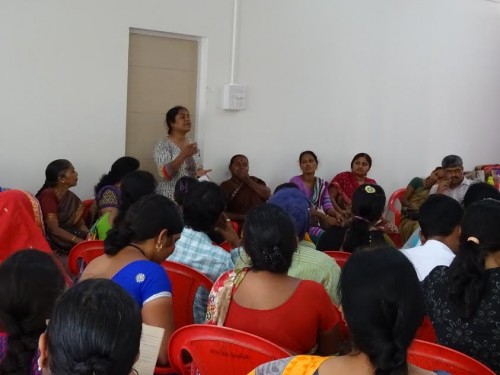
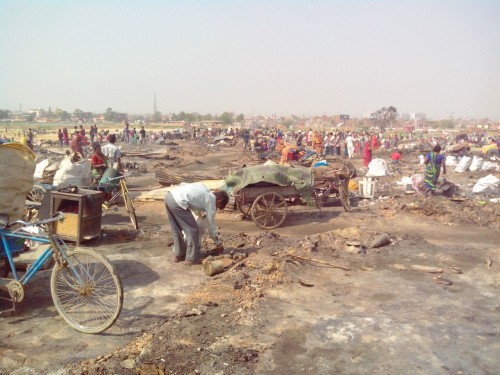
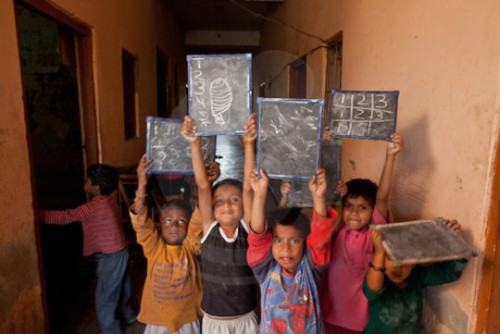
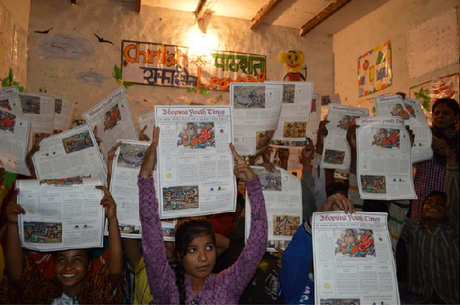
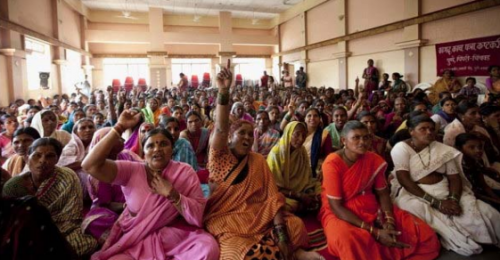
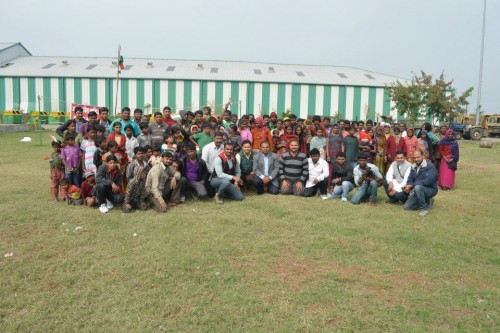
 Latin America
Latin America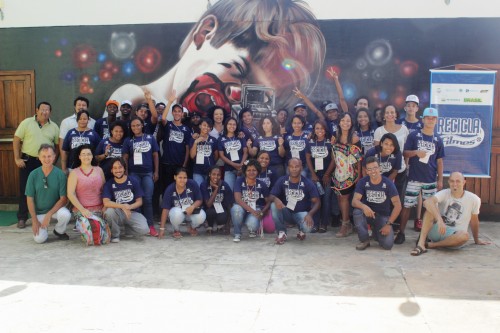

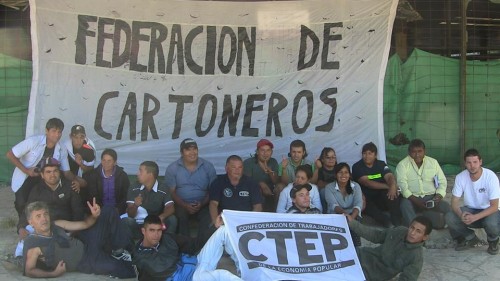
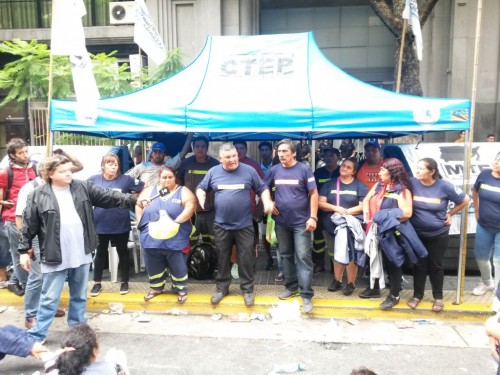
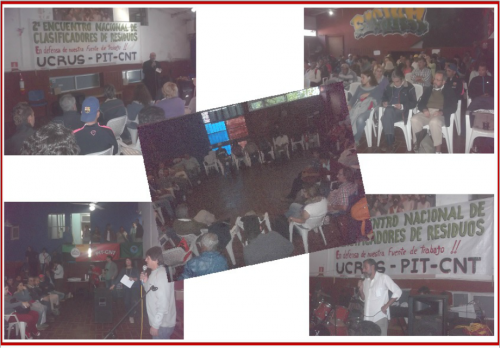
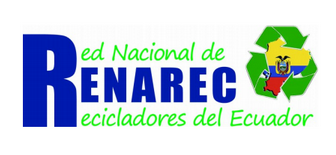
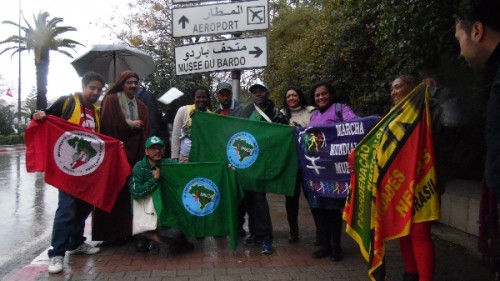
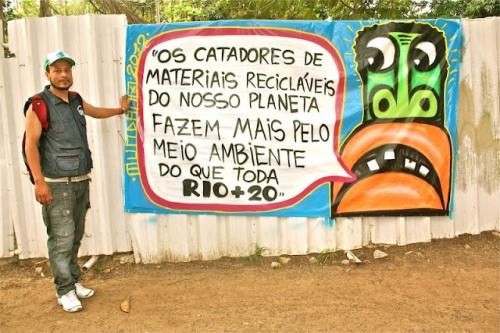
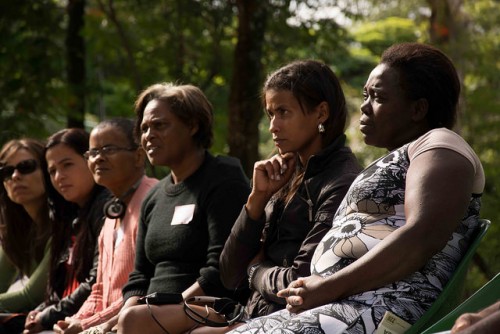
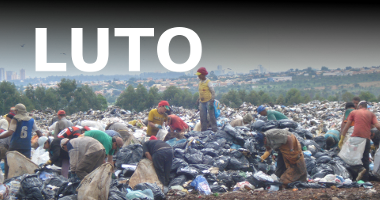
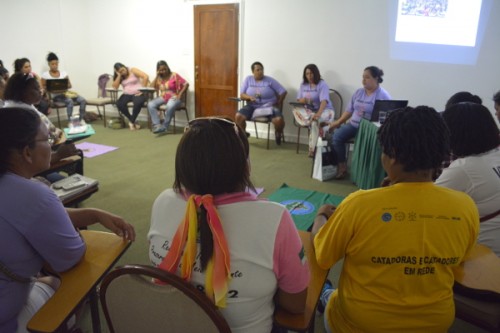
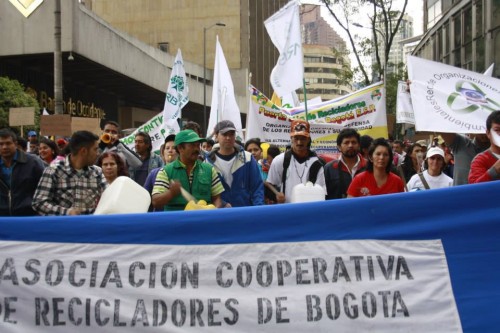
 Africa
Africa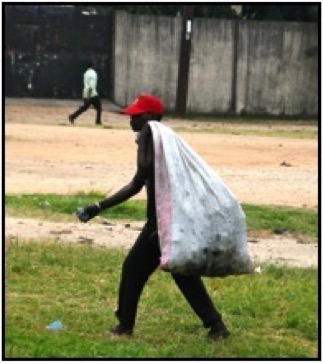
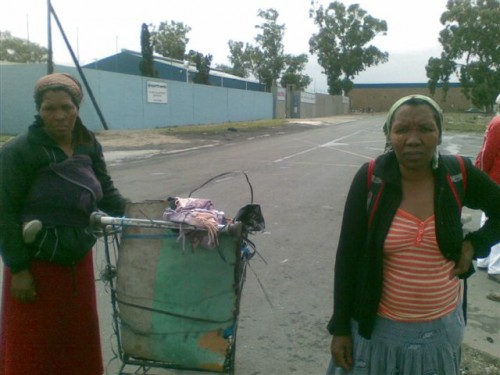
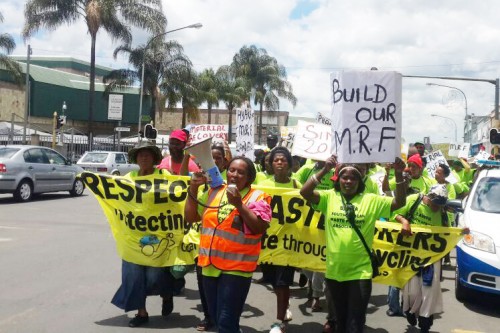
 Europe
Europe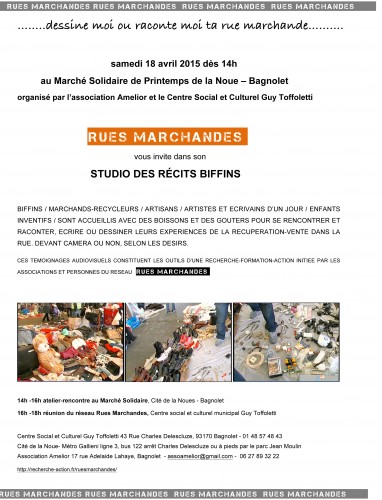
Leave a comment